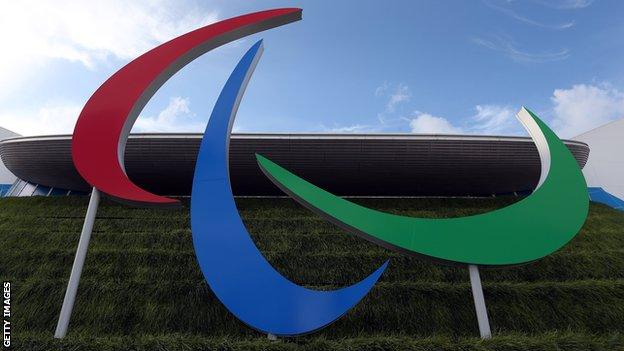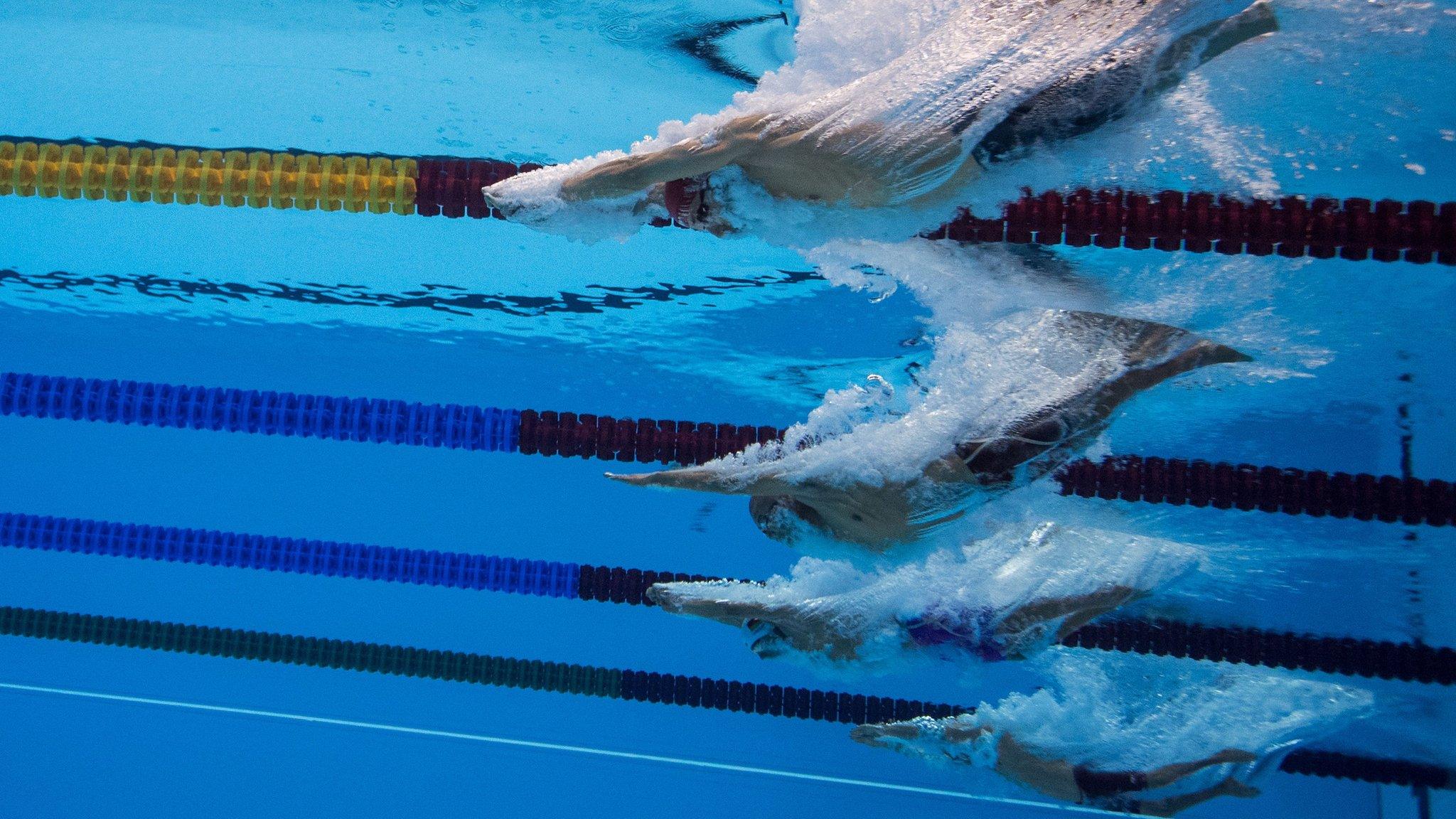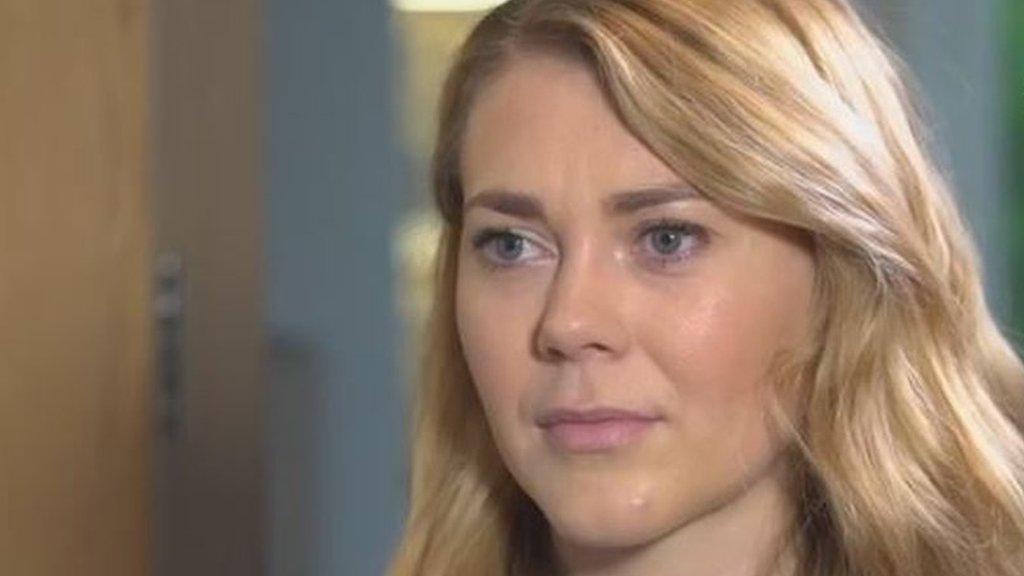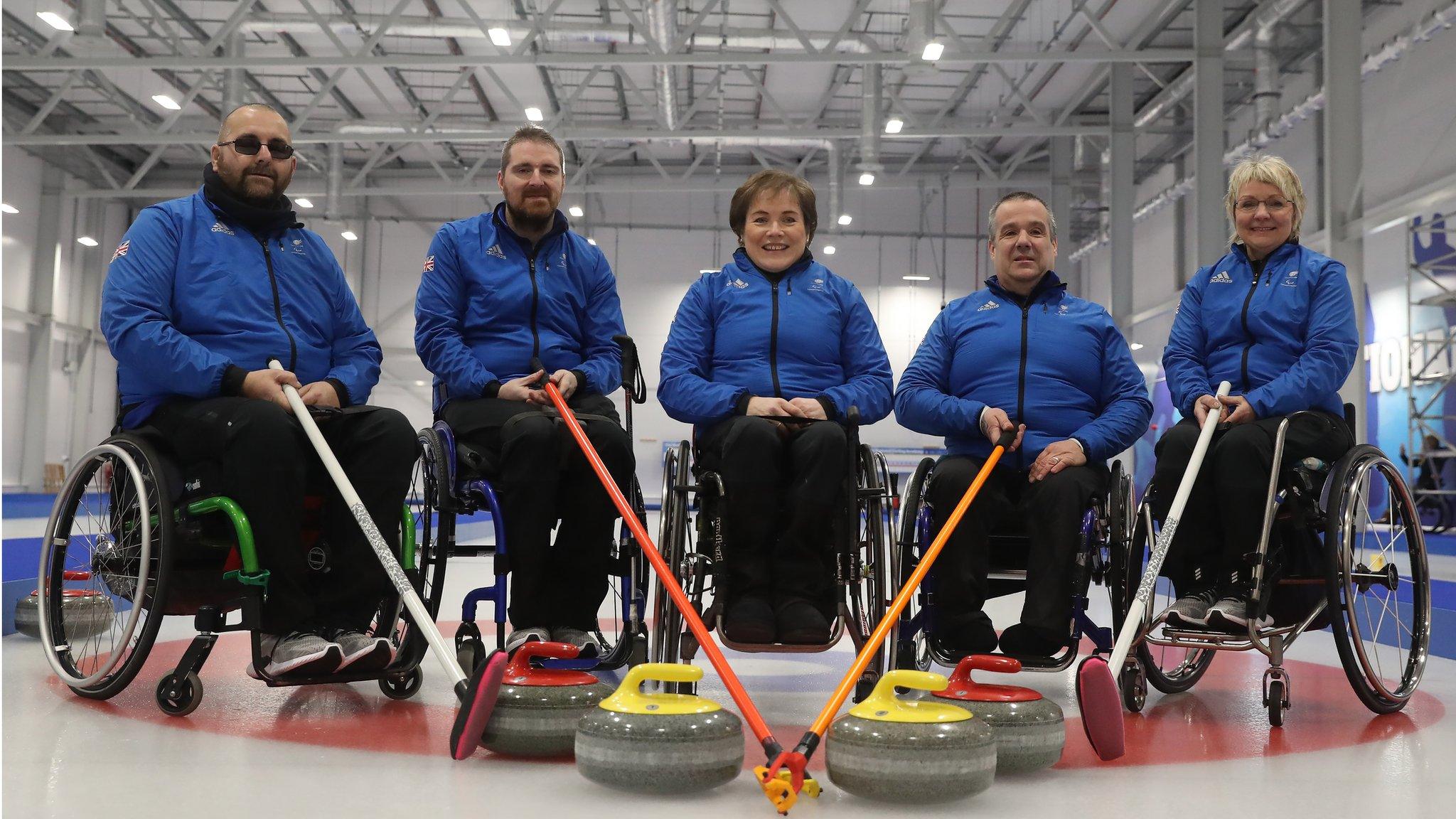Quarter of British Para-athletes 'don't feel cared about'
- Published

The 2018 Winter Paralympics will be held in Pyeongchang from 8-18 March
A quarter of Britain's leading Para-athletes do not feel cared about as a person, a recent survey has found.
The findings - obtained by the BBC - were part of a British Athletics 'Culture Health Check' feedback session at a World Class Programme weekend.
More than 80% of the 49 athletes, external on the programme responded and received the results earlier this month.
Among several conclusions was that "athletes feel like a medal commodity and disposable".
UK Sport has asked all sports to take part in a review of the culture across the high performance system after a series of athlete welfare scandals.
The findings also revealed:
28% of athletes surveyed disagreed that feedback is valued
Not all (93%) are proud to be part of the programme
There was "disengagement between staff and athletes"
Stakeholder input was "low and negative"
Under a section titled 'Mental Health', the 'interpretation of results' included: "shocked at the amount of athletes that feel this way [not cared about as a person]"
A lack of information when it comes to classification and the need to "remove the fear of voicing your opinion"
Among suggested improvements was "external support - not British Athletics or the English Institute of Sport - but someone that is not invested in elite performance"
In November, MPs heard evidence of cheating in the classification system, with Paralympian Baroness Tanni-Grey Thompson testifying that athletes were threatened with non-selection if they spoke out.
A new code outlining the processes of classification of British Paralympians, allowing them to report alleged abuse of the system independently of their governing body, is set to introduced.
The survey also produced some positive findings. Athletes were told that 95% of them had agreed that the World Class Programme (WCP) "adds value" and that they were most proud of "how much [staff] care", "positive feedback", and a "willingness to improve the WCP".
What do the governing bodies say?
In a statement, British Athletics said it "welcomed the implementation of the Culture Health Check" and that they were proactive in encouraging athletes to respond "as openly and honestly as possible".
Athletes were "invited to a structured feedback session to explore some of the areas of negative feedback", which was attended by three members of their newly-elected independent athletes commission.
A statement read: "While there was a wide range of positive feedback, we focussed this session on those areas identified as needing improvement.
"This reflects our continuing determination to remain a leader in developing productive engagement with athletes on our World Class Programme."
UK Sport said they would "not be commenting on any aspects" of the results and criticised the fact that the findings were leaked.
"We have made the commitment to our athletes, sports, staff and stakeholders who are contributing to this work that the information they provide will remain absolutely confidential," read a statement.
"It is disappointing that some have chosen to break this confidentiality and undermine the whole process of improvement we are undertaking through our work with sports."
The emails that UK Athletics sent to athletes earlier this month informing them of the results contained no reference to confidentiality.
However, six-time Paralympic club throw and discus medallist Stephen Miller also said he was "disappointed" in the leak.
"Through the athletes' commission and advisory group there are now official and robust channels through which athletes and coaches can voice their feedback, opinions, concerns and issues," he tweeted., external
"I've always felt incredibly lucky, proud and honoured to be part of the World Class Programme."
F51 Paralympic and world club throwing champion Jo Butterfield said the meeting was "immensely positive", while Hannah Cockroft, 15-time Paralympic and World gold medallist in T34 wheelchair racing, also spoke of her disappointment, external at the information being leaked.
"We as a team were most surprised about people not feeling cared about," she said.
- Published23 March 2017

- Published10 March 2017

- Published24 February 2018
